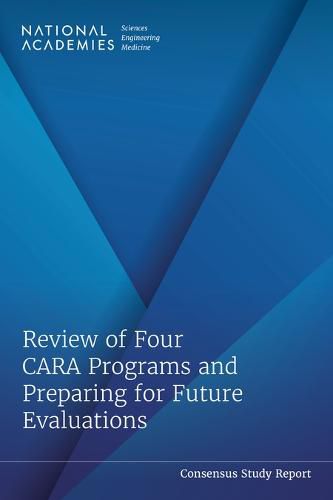Readings Newsletter
Become a Readings Member to make your shopping experience even easier.
Sign in or sign up for free!
You’re not far away from qualifying for FREE standard shipping within Australia
You’ve qualified for FREE standard shipping within Australia
The cart is loading…






The Comprehensive Addiction and Recovery Act (CARA; P.L. 114-198) was signed into law in 2016 to help address the challenges of overdose deaths and opioid use disorder, and to expand access to evidence-based treatment. Among these efforts was the authorization of four grant programs to be overseen by the Substance Abuse and Mental Health Services Administration (SAMHSA).
In 2018, SAMHSA requested that the National Academies establish a committee to conduct a review of the four programs, which focus primarily on opioids, but occasionally include treatment and recovery services for co-occurring substance use disorders. The review resulted in three consensus study reports over five years. This third and final report aims to (1) understand the processes of the four grant programs; actions taken by grantees and their partners; impacts to clients, patients, the community, and public; and structural or environmental changes that might have resulted from grant funding, and (2) analyze how future congressionally mandated evaluations can be structured and carried out to better support policy makers.
Table of Contents
Front Matter Summary 1 Introduction 2 Methods and Approach 3 BCOR Findings 4 PPW-PLT Findings 5 OD Treatment Access Findings 6 FR-CARA Findings 7 Conclusions About the CARA Programs 8 Preparing for Future Evaluations 9 Concluding Observations References Appendix A: Supplementary Program Information Appendix B: Contracted NORC Report Appendix C: Evaluation Types and Data Requirements Appendix D: Committee Member Biographical Sketches
$9.00 standard shipping within Australia
FREE standard shipping within Australia for orders over $100.00
Express & International shipping calculated at checkout
Stock availability can be subject to change without notice. We recommend calling the shop or contacting our online team to check availability of low stock items. Please see our Shopping Online page for more details.
The Comprehensive Addiction and Recovery Act (CARA; P.L. 114-198) was signed into law in 2016 to help address the challenges of overdose deaths and opioid use disorder, and to expand access to evidence-based treatment. Among these efforts was the authorization of four grant programs to be overseen by the Substance Abuse and Mental Health Services Administration (SAMHSA).
In 2018, SAMHSA requested that the National Academies establish a committee to conduct a review of the four programs, which focus primarily on opioids, but occasionally include treatment and recovery services for co-occurring substance use disorders. The review resulted in three consensus study reports over five years. This third and final report aims to (1) understand the processes of the four grant programs; actions taken by grantees and their partners; impacts to clients, patients, the community, and public; and structural or environmental changes that might have resulted from grant funding, and (2) analyze how future congressionally mandated evaluations can be structured and carried out to better support policy makers.
Table of Contents
Front Matter Summary 1 Introduction 2 Methods and Approach 3 BCOR Findings 4 PPW-PLT Findings 5 OD Treatment Access Findings 6 FR-CARA Findings 7 Conclusions About the CARA Programs 8 Preparing for Future Evaluations 9 Concluding Observations References Appendix A: Supplementary Program Information Appendix B: Contracted NORC Report Appendix C: Evaluation Types and Data Requirements Appendix D: Committee Member Biographical Sketches